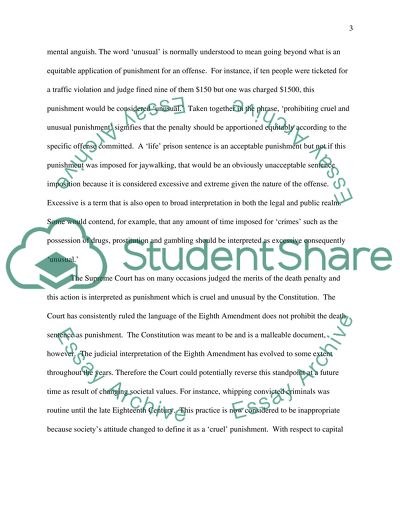Cite this document
(“The Death Penalty in the United States Research Paper”, n.d.)
Retrieved from https://studentshare.org/family-consumer-science/1414510-the-death-penalty-in-the-united-states
Retrieved from https://studentshare.org/family-consumer-science/1414510-the-death-penalty-in-the-united-states
(The Death Penalty in the United States Research Paper)
https://studentshare.org/family-consumer-science/1414510-the-death-penalty-in-the-united-states.
https://studentshare.org/family-consumer-science/1414510-the-death-penalty-in-the-united-states.
“The Death Penalty in the United States Research Paper”, n.d. https://studentshare.org/family-consumer-science/1414510-the-death-penalty-in-the-united-states.


